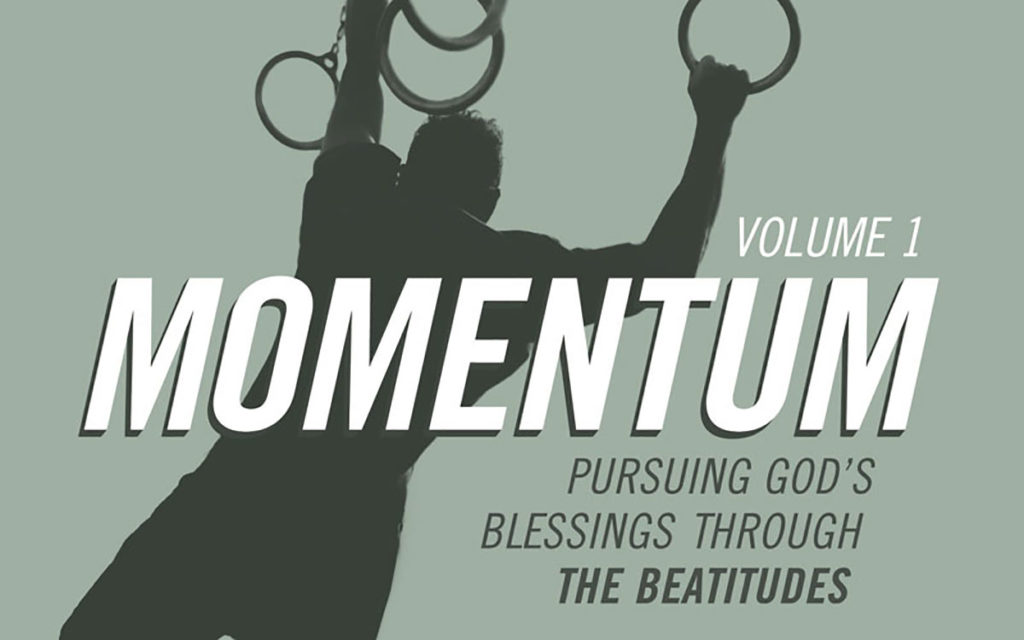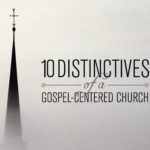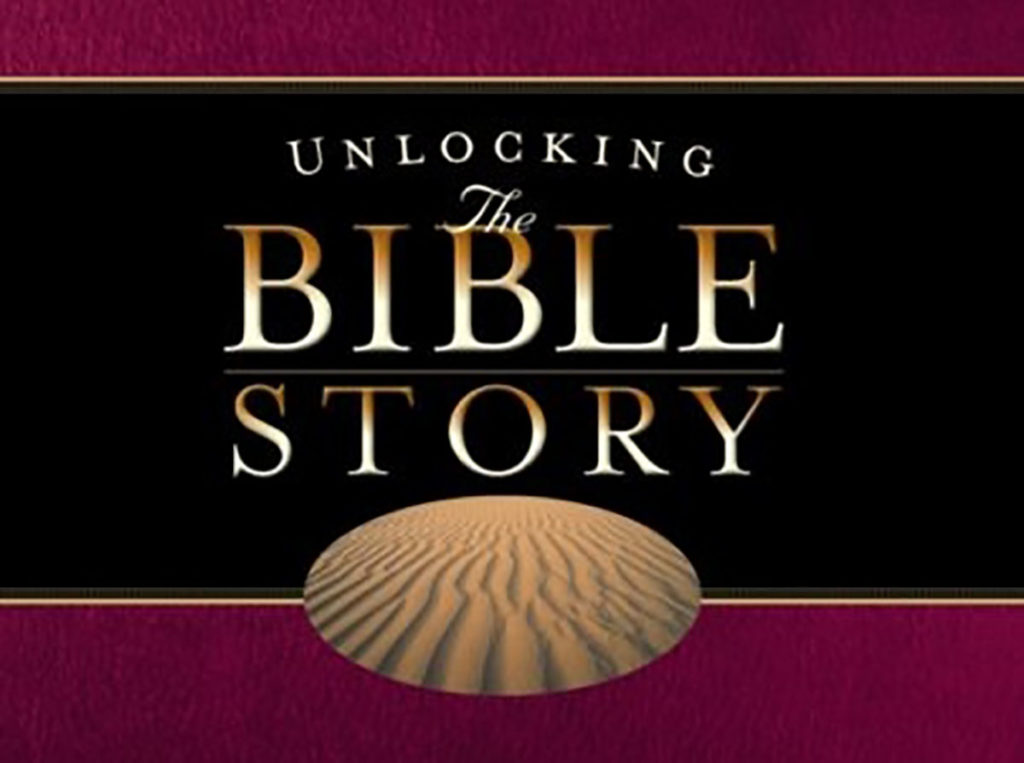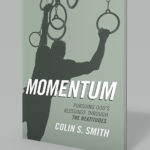How would you feel if, in the news one morning, you discovered that forty-two of the fifty American states had left the union and each had a completely independent government and armed forces? Then, what if several years later, those forty-two independent states collapsed and were overrun by enemies?
As a citizen in one of the eight remaining “United States,” you would no longer be part of a world superpower. Instead, you would be a citizen of a rather small country. What once seemed strong and secure would now seem weak and vulnerable.
That’s how it was for the people of God in the two tribes that made up the southern kingdom of Judah. In the time of David, Israel had been a dominant power, with the twelve tribes united. But after ten of the twelve tribes declared their independence, things changed radically for the south. The nation was diminished militarily and economically, and within two hundred years, the northern kingdom was overrun by enemies and the ten tribes were scattered.
God’s promise to bless the descendants of Abraham and then to bring blessing to the nations of the world through them must have looked very doubtful. But God’s promise to bless His people had never been revoked.
A Turn for the Worse
For many years, the people of Judah had the benefit of better leadership than their brothers and sisters in the north. But things took a turn for the worse when Manasseh came to the throne. He reigned for fifty-five years (2 Kings 21:1) and brought more trouble to God’s people than anyone else: “Manasseh led them astray to do more evil than the nations had done whom the LORD destroyed before the people of Israel” (21:9).
God had driven the Canaanites out of the land because of their many sins. But now God’s own people were doing things that were even worse! Manasseh promoted the worship of Molech, which included an evil rite in which children were sacrificed in a fire (21:6). If God judged the Canaanites for their sins, how could He restrain judgment on His own people (21:11)? God’s people were called to be a light in a dark place, but the reality was that they were living in the same darkness as the people around them!
At the end of Manasseh’s reign, his son Amon came to the throne. But he lasted only two years before he was murdered, leaving his eight-year-old son, Josiah, as king.
The Influence of a Godly Leader
In contrast to his father and grandfather, Josiah “did what was right in the eyes of the LORD and walked in all the way of David his father, and he did not turn aside to the right or to the left” (2 Kings 22:2).
Josiah began to seek the Lord in the eighth year of his reign (2 Chronicles 34:3), which would be at the age of sixteen. As a teenager he developed a heart for God that shaped his entire life. What you pursue now will shape the person you will become. It is never too early to seek the Lord.
Josiah wanted to get God’s people back on the right track, but he had no knowledge of the Bible to draw on and no godly example to follow. He had grown up in a spiritually confused and biblically illiterate culture, and yet deep within his heart there was a longing to know God.
Here is the obvious question: If you are seeking God, how are you going to find Him? Maybe you say, “I want to be different. I don’t want to continue the things that have been passed down the line in my family. I want to change, and I know I need the help of God, but how do I find Him?”
Rediscovering the Bible
Josiah knew that God was to be worshiped in the temple, so he decided to repair the house of God (2 Kings 22:3–5). While the work was in progress, Hilkiah the high priest found a dusty old book that would change the direction of the nation. He said, “I have found the Book of the Law in the house of the LORD” (22:8). This book was almost certainly a copy of Deuteronomy. How could God’s Word have become lost in, of all places, the temple!
The Word of God roundly condemned what Manasseh had done, and it is not difficult to imagine why the priests ignored the Scripture. If they had preached from the Bible in the time of Manasseh, they would have found themselves on a collision course with the culture. So they buried the Bible, and fifty years later a new generation arose that did not know God or His law.
The amazing thing is that the priests continued their work in the temple without ever using the Scriptures! Maybe that was your experience. You were seeking God and you went to church, but the Bible was rarely opened. If it was read it was never explained, and you were left with a great hunger in your soul.
Rediscovering Right and Wrong
The book of Deuteronomy was read to Josiah, and “when the king heard the words of the Book of the Law, he tore his clothes” (2 Kings 22:11).
Don’t be surprised if the first effect of God’s Word in your life is to make you feel like tearing your clothes. When you see the life to which God calls you, you will see how far you are from it, and how far you are from Him. You will begin to say, “Why did I not know this? Nothing in my life conforms to what God requires of me!”
Josiah gathered the elders and the people and read the whole book of Deuteronomy aloud. Standing by the pillar of the temple, he made a public pledge to obey the Lord. Then all the people joined in making the same commitment (23:2–3).
The Word of God lit a fire in Josiah’s life, and he determined that he would put what God
had said into practice. This vision gripped his mind and soul: by God’s grace, I will live a life that honors Him.
Josiah traveled throughout the country, and wherever he found altars or other evidence of idolatry in the land, he completely destroyed them. It was the greatest onslaught against idolatrous practices in the history of Israel. Nothing like this had ever happened before.
The idolatrous altars Solomon built for his foreign wives had stood for three hundred years, as did the golden calf set up by Jeroboam (23:13, 15). No other king dared to touch them, but Josiah destroyed them completely.
God held back judgment on the nation during Josiah’s lifetime: “Because your heart was penitent, and you humbled yourself before the LORD… Your eyes shall not see all the disaster that I will bring upon this place” (22:19–20).
Josiah was unrelenting in his pursuit of righteousness: “Before him there was no king like him, who turned to the LORD with all his heart and with all his soul and with all his might, according to all the Law of Moses, nor did any like him arise after him” (23:25). You couldn’t ask for a better epitaph than that!
Righteousness Begins in the Heart
But there were limitations to Josiah’s achievement. Most of the change came as the direct result of Josiah’s own activity. It was not a grass roots movement; it was all done by state intervention.
There was a strong element of coercion involved in all of this. So it is not surprising to find that as long as Josiah lived, “they did not turn away from following the LORD, the God of their fathers” (2 Chronicles 34:33). But as soon as Josiah died, things went back to the way they were before.
The prophet Jeremiah gives us a fascinating insight into the limitations of Josiah’s reform: “Judah did not return to me with her whole heart, but in pretense, declares the LORD” (Jeremiah 3:10). Is that you? Pretending one thing with parents and another with friends? One thing at work, another at home, and another at church? If all you do is conform to the expectations of others, when you are with a different crowd you will be a different person. And in the end, you won’t know who you are.
Good behavior can sometimes be little more than a reflection of your environment. True righteousness comes from a heart that has been changed by God, and for this reason God promised a new covenant: “I will put my law within them, and I will write it on their hearts” (Jeremiah 31:33).
God was promising to do what no parent, church, or state can ever do: get His law into our minds and hearts so that we will want what He has commanded.
Centuries later, Jesus took a cup filled with wine and said, “This cup that is poured out for you is the new covenant in my blood” (Luke 22:20). He was talking about the covenant God had promised through Jeremiah in which God would change us from the inside out.
When you come to Jesus in faith and repentance, He will put a desire for righteousness in you. That is the promise of the new covenant. God gives us more than His law; He gives us Himself! God’s Spirit will create new desires and new capacities within you. You will come to love God and long for righteousness. You will want to pray, and when you sin, it will not be long before you feel the need to come to Christ and be forgiven.
This hunger and thirst for righteousness is one of the greatest blessings of the Christian life. Those who hunger for what God forbids will, in the end, experience emptiness and frustration, but those who desire righteousness will be satisfied (Matthew 5:6). Don’t settle for an outward conformity to Christian values when Christ can give you a new heart.
Opened
Righteousness must flow from the heart. Of course, good laws are better than bad ones, and they have great value in restraining evil. But the law cannot bring a change of heart, and that is why attempts to impose religion always fail.
God’s purpose is not to impose an outward conformity to His law. It is to cultivate an inward desire for righteousness. This is the promise of the new covenant and the work of the Holy Spirit. It involves changing our hearts to give us a new hunger for righteousness and a new ability to pursue a life that is pleasing to God.






